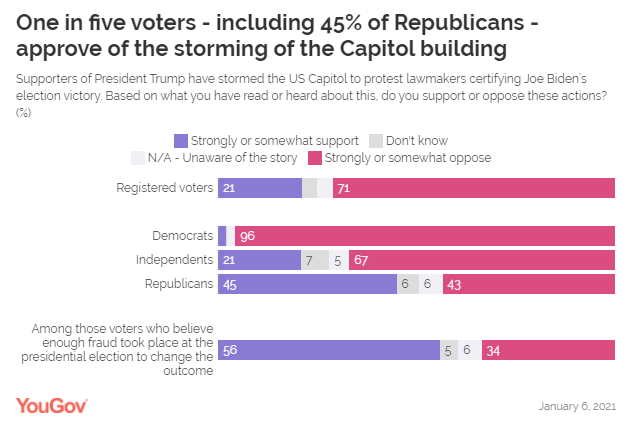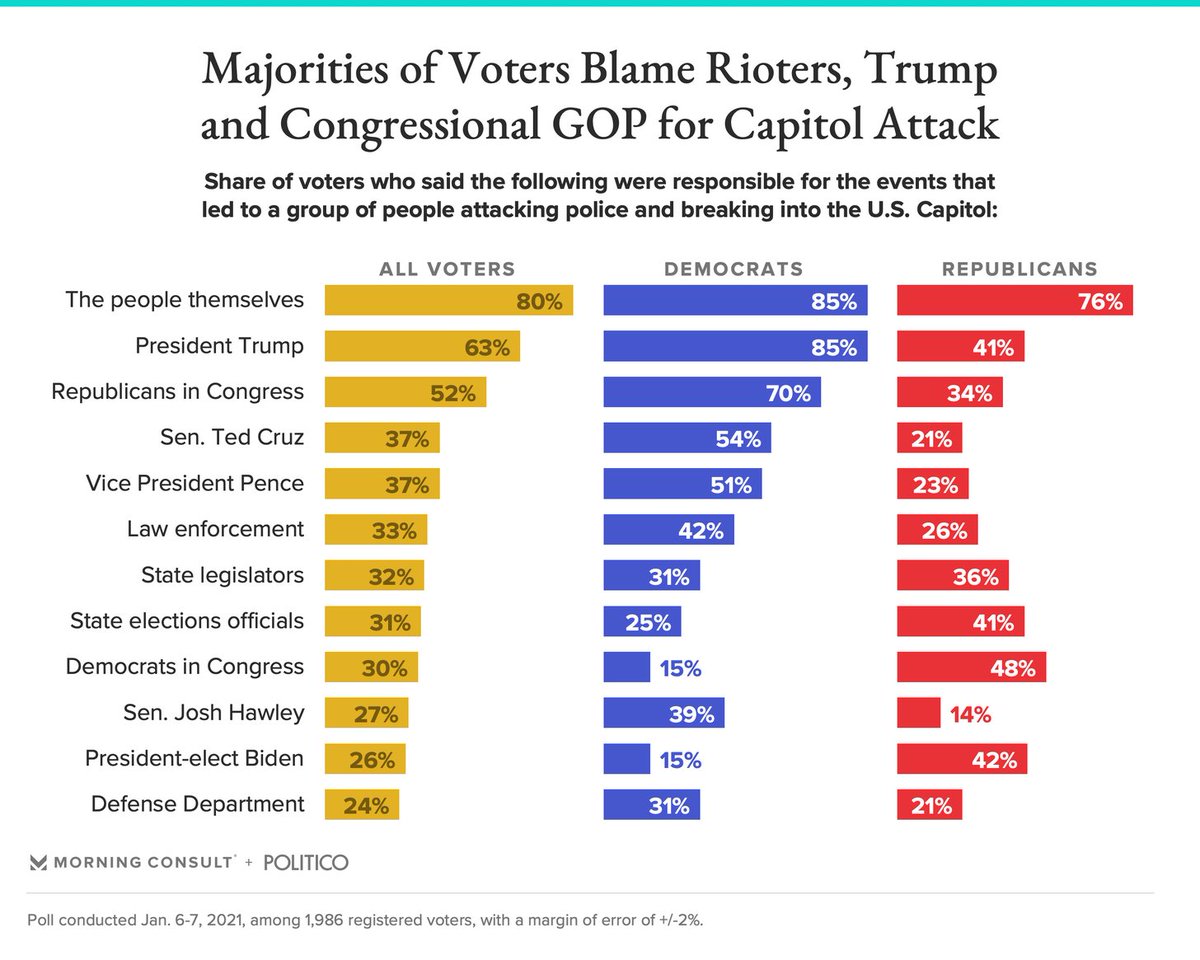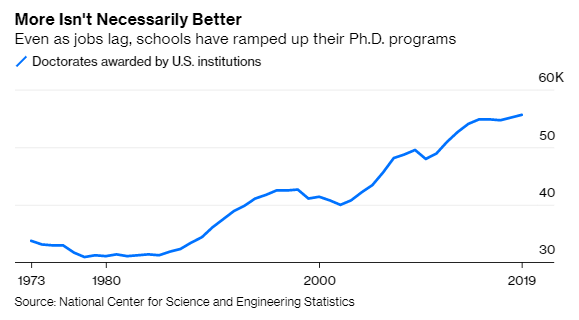
1/Alright, gather round, friends, and let me tell you the story of 1930s Japan, and how it's a cautionary tale for 2020s America.
noahpinion.substack.com/p/japanese-les…
noahpinion.substack.com/p/japanese-les…
2/Everyone knows that Japan became militarist, fascist, and (even more) expansionist in the 30s.
But what few people know is that this followed 6 years of coup attempts by EVEN MORE militarist/fascist/expansionist lunatics.
So let's review that history.
But what few people know is that this followed 6 years of coup attempts by EVEN MORE militarist/fascist/expansionist lunatics.
So let's review that history.

3/The first coup attempt was the March Incident in 1931.
Basically, some right-wing army officers planned to stage a riot to provoke martial law, and install a military dictator.
It failed when they couldn't get enough people to riot.
Basically, some right-wing army officers planned to stage a riot to provoke martial law, and install a military dictator.
It failed when they couldn't get enough people to riot.
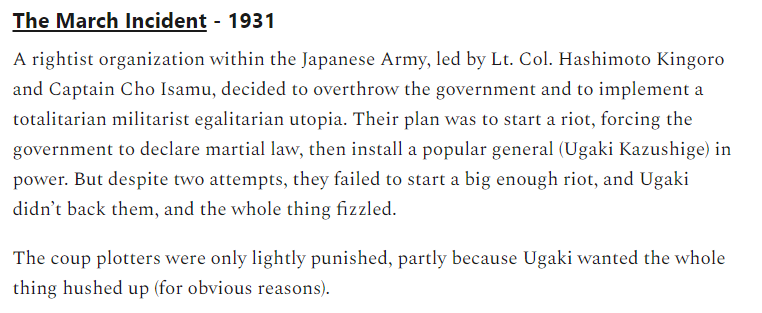
4/The coup plotters weren't really punished, so they just tried again a few months later. Some of their co-conspirators ratted them out and they failed again.
But AGAIN THEY WEREN'T PUNISHED! People defended them, saying they were simply too patriotic. 🤡
But AGAIN THEY WEREN'T PUNISHED! People defended them, saying they were simply too patriotic. 🤡

5/These coup plotters wanted the following:
1. A military dictator
2. Aggressive military action against Japan's rivals (i.e. every other country)
3. Increased colonial expansionism
4. Some mumbo-jumbo about cultural purity and economic egalitarianism
1. A military dictator
2. Aggressive military action against Japan's rivals (i.e. every other country)
3. Increased colonial expansionism
4. Some mumbo-jumbo about cultural purity and economic egalitarianism
6/Anyway, a year later, some different coup plotters tried again. This time their plan involved lots of assassinations. They successfully assassinated the Prime Minister, but failed to kill the visiting Charlie Chaplin (which they hoped would provoke a war with the U.S. 
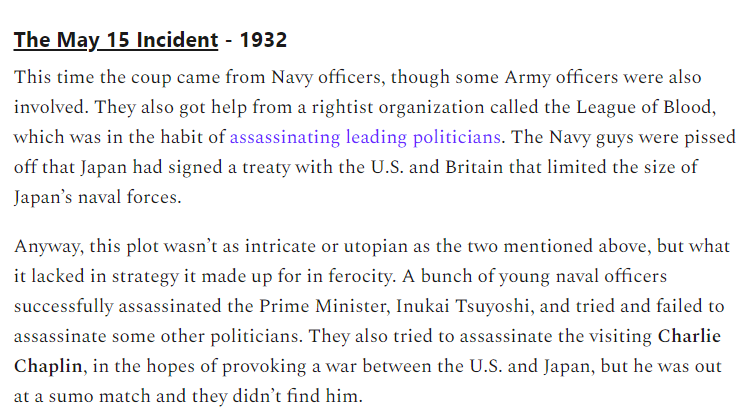
7/But despite killing Japan's elected leader, the coup plotters received only light punishment!!
There was an outpouring of popular support on their behalf. They thus received only a short stint in jail...which of course encouraged further coup attempts.
There was an outpouring of popular support on their behalf. They thus received only a short stint in jail...which of course encouraged further coup attempts.

8/Anyway then there was another coup attempt a couple years later that never got off the ground, but of course no one was punished. 

9/But finally, in 1936, the big one came.
A large number of junior army officers, with troops to back them, and sympathies from some generals, launched a huge insurrection aimed at assassinating senior politicians and seizing control of government buildings.
A large number of junior army officers, with troops to back them, and sympathies from some generals, launched a huge insurrection aimed at assassinating senior politicians and seizing control of government buildings.
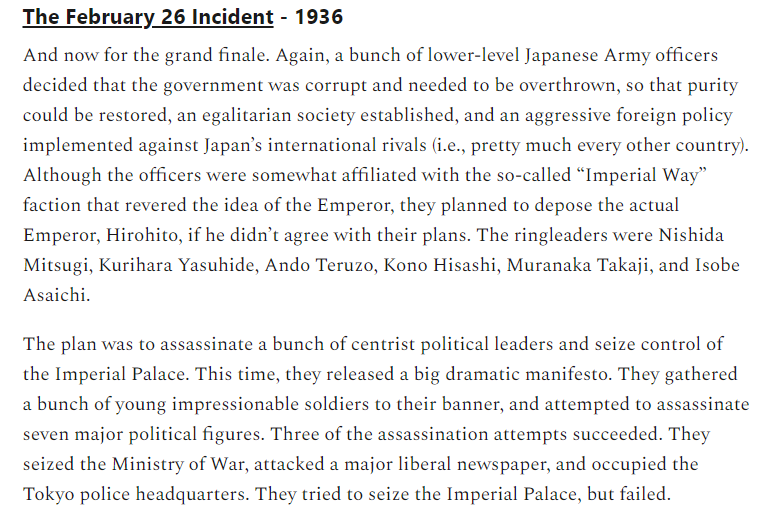
10/Some generals sympathized with the insurrectionists, but the Emperor and a critical mass of loyalists opposed them. Eventually they were arrested.
This time -- FINALLY -- the government meted out harsh punishments, executing 17 of the plotters and imprisoning others.
This time -- FINALLY -- the government meted out harsh punishments, executing 17 of the plotters and imprisoning others.

11/But now here's the thing. The Japanese government went on to do pretty much exactly what the coup plotters wanted!
They put the military in charge of the country! They tried to colonize all of Asia! And they started a war with the U.S.!
Oops.
They put the military in charge of the country! They tried to colonize all of Asia! And they started a war with the U.S.!
Oops.
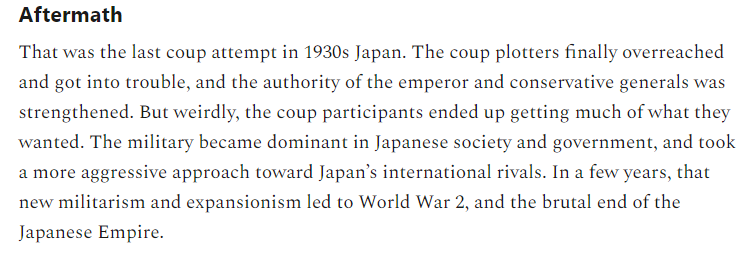
12/So what can we learn from Japan's failures in the 1930s?
Fortunately, the coup attempt of 1/6/2020 didn't come from within the military. Nor does Trump support or fascism in general come from the military. So that's one positive difference.
Fortunately, the coup attempt of 1/6/2020 didn't come from within the military. Nor does Trump support or fascism in general come from the military. So that's one positive difference.

13/Another positive difference is that the U.S. does not currently have a tradition of "government by assassination", as Japan did then. In the 60s we did, but assassinations are thankfully rare now. 

14/BUT, there are some disturbing similarities between 1930s Japan's crazies and the right-wingers who stormed the Capitol on 1/6. 

15/The first big lesson from the failures of 1930s Japan is:
PUNISH THE PLOTTERS HARSHLY THE FIRST TIME.
Don't wait for the coup attempts to escalate! Don't call the coup plotters "patriots"! Don't let them off with a slap on the wrist!
PUNISH THE PLOTTERS HARSHLY THE FIRST TIME.
Don't wait for the coup attempts to escalate! Don't call the coup plotters "patriots"! Don't let them off with a slap on the wrist!
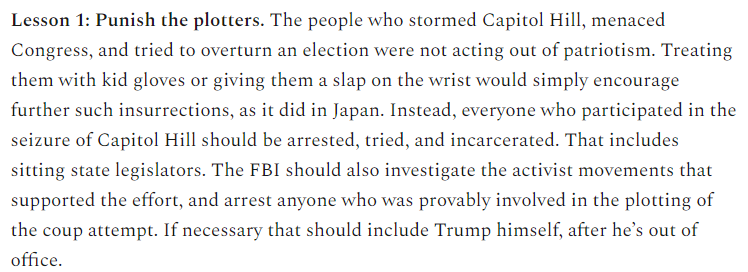
16/The second big lesson is:
DON'T GIVE IN TO THE COUP PLOTTERS' IDEOLOGY.
Japan basically became what the rightists wanted. We musn't do that.
DON'T GIVE IN TO THE COUP PLOTTERS' IDEOLOGY.
Japan basically became what the rightists wanted. We musn't do that.

17/Remember, a slap on the wrist will just encourage the same assholes to be bolder the next time.
The first of Japan's many coups was even less impressive than what we saw on 1/6!
Because it wasn't punished, it encouraged more and more.
The first of Japan's many coups was even less impressive than what we saw on 1/6!
Because it wasn't punished, it encouraged more and more.
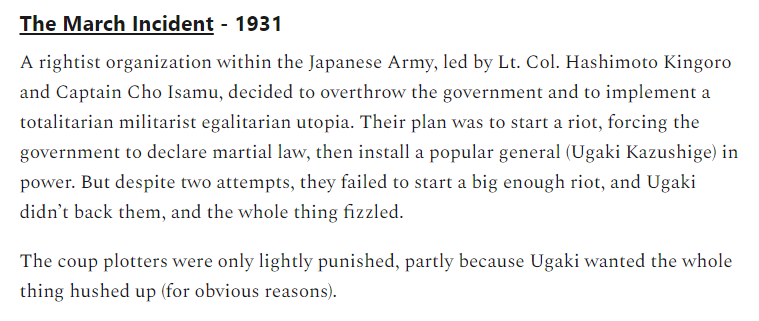
18/We're a more stable country than 1930s Japan, with better institutions.
But if we give coup plotters a slap on the wrist, and call them "patriots", we too will go down the path of chaos and fascism.
(end)
noahpinion.substack.com/p/japanese-les…
But if we give coup plotters a slap on the wrist, and call them "patriots", we too will go down the path of chaos and fascism.
(end)
noahpinion.substack.com/p/japanese-les…
And remember, if you like my newsletter, you can sign up for my free email list and have it delivered directly to your inbox! 😊
noahpinion.substack.com
noahpinion.substack.com
• • •
Missing some Tweet in this thread? You can try to
force a refresh

